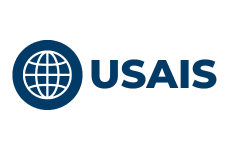To all the people who are on a J-1 visa USA, here is a major policy update from the U.S. Department of State regarding the Exchange Visitor Skills List that extends your stay to the U.S., especially if you are an Indian citizen: You no longer need to return to your home country, as the new policy has removed the two-year home residency requirement. This applies to 34 new countries, including India. It means that Indians on a J-1 visa to the USA have significantly more opportunities to stay longer and benefit from career growth.
The decision aligns with the need to meet a global workforce, especially in fields like STEM, as the U.S. government recognizes the need for a global talent pool to stay competitive.
What has changed with the new policy?
The new policy, which took effect on December 9, 2024, removed 34 countries from the Skills List, including India, China, South Korea, Malaysia, Saudi Arabia, and the UAE. This means that J-1 visa USA holders from these countries, including India, do not need to complete the two-year home residency period, which significantly expands their opportunities for extended stay and career growth in the U.S.
What is the J-1 Visa program?
The J-1 visa USA issued by the United States for individuals participating in work—and study-based exchange visitor programs to foster cultural exchange, enable participants to gain professional and academic experience in the U.S., obtain exposure to U.S. culture and practices, and obtain training and knowledge in their fields while promoting mutual cultural understanding. The duration of their stay depends on their program category, which ranges from a few months to several years. Also, spouses and children under 21 of J-1 visa holders can apply for a J-2 visa, which allows them to accompany the J-1 holder to the U.S. The J-2 visa also enables J-2 dependents to request work authorization in the U.S., providing them with opportunities for personal and professional growth during their stay.
The U.S. Department of State approves the programs under the following categories:
- Au Pairs
- Camp Counselors
- Students (secondary and post-secondary)
- Teachers
- Trainees and Interns
- Professors and Scholars
- Physicians
- Specialists
J1 visa requirements state that J-1 visa holders must be sponsored by an organisation approved by the U.S. Department of State, which oversees the program’s alignment with the visa’s goals and ensures the visa holders’ compliance with the program requirements.
Who is eligible for a J-1 visa?
Eligibility for the J-1 visa USA program involves the following criteria:
- The J1 applicant must be accepted to an approved program under the J-1 Exchange Visitor Program.
- They must demonstrate proficiency in English for effective participation in the program.
- The applicant must show sufficient financial resources if the program sponsor does not sponsor the expenses.
Also, they must show their intent to be non-immigrants by showing plans to return home after the program. Currently, a critical J1 visa requirement is that they are subject to a two-year home residency requirement, which means they must return to their home country for two years before applying for any other U.S. visas like H-1B or permanent residency.
This policy was one of the most common challenges faced by J1 visa holders, as it limits their future stay and opportunities in the U.S.
What Does It Mean For J-1 Visa Holders Or The Ones Who Want To Apply For J-1 Visa?
- Extended Stay in the U.S: First, they can stay in the U.S. after completing their programs and do not need to return to their home country.
- Pathway to New Visa Types: With this extended stay, they can change to a different visa status, like H-1B for work or L-1 for intra-company transfers or even pursue permanent residency without needing to return to their home country, giving them a sense of control over their future in the U.S.
- Career Growth Opportunities: This change provides greater flexibility for professional and academic growth, particularly for individuals in STEM and other high-demand fields.
- If you are a J-1 visa holder, such as a foreign medical graduate or one with government funding, you may still be subject to the two-year residency requirement. Still, the policy informs you of the changing requirements and opens the door to many other future possibilities.
However, there are exceptions; for example, individuals who intend to work as foreign medical graduates or those who have government sponsorship still must fulfil the two-year residency requirement as stated before. But the new policy provides a great many opportunities for those who meet J1 visa requirements, as well as presents a set of possibilities for professional enlightenment and constant work.
Still, such policy shifts are few and far between, and they alter the lives of those on a J-1 visa USA greatly. This update makes their pathways to career development less complicated, minimizes interference, and creates new opportunities for progressive career development in the United States.
Why Trust USAIS?
Policy changes are always demanding because people seek to understand the conditions guiding specific countries’ immigration policies. However, you could always count on us, USAIS, as your source for bits of information and information on U.S. immigration services to inform you adequately. We have over thirty years of experience assisting individual and corporate clients with all aspects of immigration to the United States, including the J-1 visa USA and meeting relevant J-1 visa requirements.
The team at USAIS is now up to date and ready to give you all the latest information as well as help to follow for your J-1 Visa. Every step—from preparing the document to assessing the skills and providing the policy—we guarantee that your application meets the most recent guidelines and shines, among others.
This is progress, but the problem is that legislative measures adopted under the Congressional Review Act may repeal the policy within the next 60 days. Be patient and wait for your turn because USAIS will inform you of any new updates that may impact your stay. Come to our blog for more articles, and always be ready for something new.
Frequently Asked Questions
Ques1. What is the 2-year rule for a J-2 visa?
Ans – Under these laws, J visa holders who meet certain criteria are not able to change status to or receive visas in the following categories until they have returned to their home countries for at least 2 years or until they receive waivers from USCIS: H, L, K, or entrant immigrant lawful permanent resident (LPR).
Ques2. How long can I stay in the US after my J-1 visa expires?
Ans – A holder of a J-1 visa can stay in the United States for up to 30 days after the program of study; an F-1 visa holder, 60 days.
Ques3. Can I change my J-1 visa to a green card?
Ans – It is possible to apply for a Green Card while you are in the country on a J1 visa, but you need to understand some strict conditions that come with it, for instance, the two-year home residency rule.

